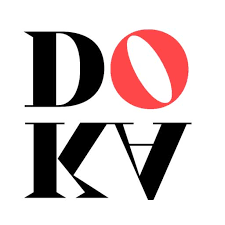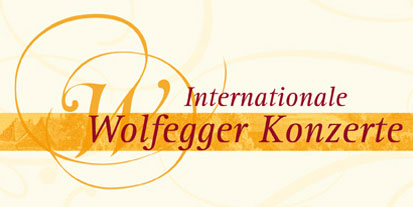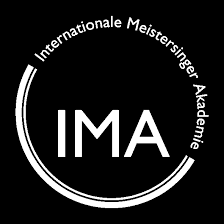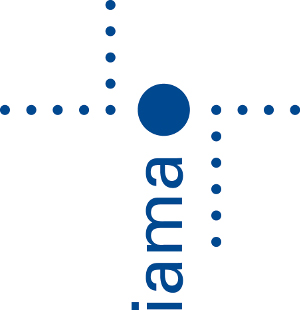Trust, passion, love and knowledge of the matter - enthusiasm for music and musicians are the foundations of our work.
In 1984 Elisabeth Ehlers and Lothar Schacke founded the KünstlerSekretariat am Gasteig as a small, fine agency very close to the then newly built cultural centre at Munich's Gasteig. From the beginning, it was intended to be an exclusive list of selected singers, instrumentalists and conductors who were individually advised in close, personal contact and whose professional path was planned and shaped according to their wishes in Germany and internationally. The entire team of the Artists' Secretariat is still committed to this goal today, even though the list of artists has grown considerably in the meantime.
As a link between artists and promoters, personal advice to our business partners is just as important to us as reliable handling of the arranged engagements or good cooperation with record companies and the press.
In more than 30 years, the Künstlersekretariat am Gasteig, first in Franziskanerstraße, then at Rosenheimer Platz, has slowly and steadily expanded. In 2012, Verena Vetter became the third partner in the agency where she learned her trade. New, larger offices were needed and in 2013 they were found in Montgelasstraße in Bogenhausen, where since then song and chamber concerts can also take place as dress rehearsals or CD presentations.
Still located on the Isar and also still on a steep incline ('gacher Steig' = Gasteig), the agency continues to rightly bear its name.
Montgelasstraße 2
81679 München
Deutschland
Welcome to our small chamber concert hall!
The renovation of the Philharmonie is dragging on, the new construction of the planned concert hall in the Werksviertel is on hold and there is no small hall in the Isarphilharmonie. All right, the acoustics are not from Toyota, but we are happy to be able to offer a noble, small chamber music hall for an audience of a good 50 people in our own rooms. Inaugurated by Christian Gerhaher and Gerold Huber, we have been able to present recitals and CD presentations by our artists here time and again, and we have also been able to experience great opera cinema here.
That special something - live from the agency: our chamber music hall in Montgelasstraße!
This season (2014/2015) the Künstlersekretariat am Gasteig celebrates its thirtieth anniversary. Can you still remember how it all began?
Elisabeth Ehlers:: Of course. In the early eighties, Lothar Schacke and I worked at Konzertdirektion Wylach in Wuppertal, but at some point the time was ripe for a change.
Lothar Schacke:: Wait, we have to start a few years earlier. At the end of the seventies I sang in the choir with your mother and after rehearsal she used to give me a lift in the car. Once I told her that I was studying architecture but would much rather be a church musician. She then said that I absolutely had to meet you, that you were also totally enthusiastic about classical music and worked in a concert management.
Ehlers:: And then we met and went to a concert together. The Staatskapelle Dresden played under Herbert Blomstedt. At that time we could not have imagined that ten years later we would be standing in for him.
Schacke:: On 1 September 1979 I also started working for Konzertdirektion Wylach. I liked what you said, plus I gradually realised that I was not good enough for professional church music.
Ehlers:: Your first major job was as a touring accompanist for the Bamberg Symphony Orchestra, which was conducted by Eugen Jochum at the time.
Schacke:: That's right, Jochum was a very dependent person, I chauffeured him and his wife Maria from town to town in a Mercedes. It was "love" at first sight. We simply suited each other. He adored Bach, so did I. His son-in-law was an urban planning professor at Harvard, I had also studied urban planning. After the tour, he asked me if I could imagine becoming his permanent travelling companion. And that's what I did. Of course I was afraid of becoming known in the industry as Jochum's bagman, but in retrospect it was exactly the right step, because through him I got to know a lot of interesting and influential people in the music scene.
Ehlers:: It was a great time. We sat in a master concert every other evening, Kempff, Menuhin, Milstein, we were hardworking, we were passionate, but at some point we realised that wasn't enough for us, we wanted more, we wanted to start our own business.
Schacke:: So I called Jochum and asked, "Mr. Jochum, do you still want me?" And he said, "If you move to Munich tomorrow, I'll hire you as manager the day after tomorrow." Shortly afterwards he was indeed the first artist of our newly founded agency.
Ehlers:: Soon afterwards Gerhart Hetzel joined us. He was the concertmaster of the Vienna Philharmonic Orchestra at the time. A special person, a great artist, who always encouraged us in the first months and years. Unfortunately, he died in an accident twenty years ago. Through the mediation of Irwin Gage, more and more singers then joined us, for example Lucia Popp, Brigitte Fassbaender, René Kollo or especially Arleen Auger.
How risky was the step into self-employment?
Schacke:: Of course it was risky, we had no money, no security and Jochum was already over 80 years old at the time.
Ehlers:: But we moved into a house on Rosenheimer Platz full of energy, Lothar Schacke into a small flat, I into a somewhat larger one on the same floor. We set up one room as an office.
Schacke:: We bought everything from the bankruptcy estate, two desks, two chairs, two mobile cupboards, only the typewriters...
Ehlers:: ...we bought at Olivetti in Frankfurt, on the way from Wuppertal to Munich. And do you know who loaded them into our car? Alexander Pereira. He was the head of the Olivetti agency there at the time. They were really modern devices with a modern display. It was all the rage at the time.
You joined the agency later, Ms Vetter. When did you first hear the name "Künstlersekretariat am Gasteig"?
Verena Vetter:: It must have been in the early nineties. I was singing in various ensembles at the time and wanted to do an internship in an artists' agency. So I asked someone who knew and was given a list of four numbers. I dialled the first one and who did I get on the line? Elisabeth Ehlers. I was lucky, a young employee didn't know yet that you don't put such calls through to the boss straight away.
Ehlers:: I remember when you asked me if we could use a trainee and I was like, "Sorry, no need."
Vetter:: But an hour later you called back. "Ms. Vetter," you said, "we do need you, my assistant has tendinitis in both hands." So I started and never left the agency again. For the last three years I've been the third in the bunch.
Was there a difficult phase in the course of the thirty years when you lay awake late at night?
Schacke:: Well, I can't remember.
Ehlers:: You have a sunny disposition. From time to time I thought about how things should continue, how things should go on after Jochum's time. He died in 1987.
Schacke:: But shortly afterwards Herbert Blomstedt called to ask if we could stand in for him, saying he had heard how wonderfully the collaboration with Eugen Jochum worked. He was on his first European tour with the San Francisco Symphony Orchestra at the time, and we met in Munich at the Holiday Inn. That same evening we agreed that we would take over his general management. HB, as we call him, is now 87 and still fitter than some of his younger colleagues.
Ehlers:: He was very similar to Jochum, the ethical attitude, the attitude towards music and the profession.
Do you think there is a certain type of artist who finds your agency attractive or is attracted to your agency?
Vetter:: It's a bit like a master and his dog. It has to fit. And the artists we have are all similar in some way. I am often told by organisers how pleasant they find our artists, how likeable and personal.
Ehlers:: They are all made of similar stuff, Frank Peter Zimmermann, formerly Tabea Zimmermann or Bella Davidovich, Christian Gerhaher or Herbert Blomstedt. They are rather averse to glamour and don't have to stand on their heads when they sing or play the violin.
Vetter:: They are all united by an incredible concentration on the content. That's harder and harder to find nowadays, but these people still exist and there are also the audiences and the organisers who appreciate this depth and seriousness.
What does an artist have to be like to suit you?
Schacke:: I couldn't work for anyone with whom I didn't feel a personal closeness. Of course, a professional distance is important, but I have a friendly relationship with all my artists. Trust is at the top of the list.
Ehlers:: Artists have parted company with us from time to time, including big names like Matthias Goerne or Mischa Maisky, but there has never been any great dissonance.
Vetter:: That's right. The artists who left make just as coherent a line as those who are with us. The ones who left us perhaps didn't fit in with us any more, they wanted something different from us.
Schacke:: There are also people who are so focused on their career that they leave immediately if something doesn't work out the way they want it to. If an artist wants everything at once and wants it as quickly as possible, it's difficult, but in the end we've usually had a good hand, after all, we've helped some artists to a great career.
How has the classical music market and thus your work changed since 1984?
Schacke:: Oh dear, I remember how long I resisted having a computer.
Ehlers:: I remember secretly buying a dog and saying to you in the morning, "Lothar, look in your office, there's something waiting for you." And you got really excited because you were sure it was a computer, but then it was this dog and you were really happy.
Vetter:: But the drastic changes came later, the internet, emails, Napster, Twitter, Facebook, that turned everything upside down.
Schacke:: That's right, we used to only talk on the phone, but now I get 150 emails every day. I read the first one at 6.30 a.m. and the last one at midnight, there are no more breaks.
Vetter:: But the internet and social networks are here and now we have to make the best of it, otherwise we will be left behind at some point.
Schacke:: I know, but everything has become so much more complicated, time-consuming and exhausting. Back then there weren't as many PR agencies as there are today.
Vetter:: Luckily we have a great PR woman in our agency. That has paid off because we can offer our artists proper packages.
How much do you have to understand about music, including technical and interpretational issues, to be a good agent?
Ehlers:: You should definitely have a passion. Each of us has turned his hobby into a profession. I, for example, play the cello. I wouldn't trust myself to be able to judge every concert in terms of musicology, but over the decades I have already developed a good ear for what is good and what is rather mediocre.
Schacke:: My grandmother was at the conservatory and wanted me to learn the piano as a boy. Unfortunately, after four years I still couldn't play Mozart sonatas, which made her stop financing the piano lessons. Later I played the organ, became a member of the church choir and took over a small concert series from the pastor. I did everything myself at that time, the posters, the press work, the music, only my father sat at the box office, who also made the recordings. Maybe that was when I first felt the joy of organising.
Vetter:: I've always sung, I've also had singing lessons and I sometimes exchange ideas with the singers about technical questions. Even if you have a good knowledge of the repertoire as an agent, you definitely have an advantage over other agents. An organiser remembers when you have given a good tip or hint.
How does the division between the three of you work? Are important questions decided on a grassroots basis?
Vetter:: The circles overlap because our conductors also work with our singers.
Schacke:: That's right, we sometimes close ranks.
Schacke:: Some artists don't come to us because of the agency, but because of a person they want to be looked after. And when someone new comes, we of course discuss it and decide together whether it makes sense to take him or her on or whether it might create a competitive situation with an artist who is already represented by us.
Schacke:: It was always important for us not to become too big. If an agency has 50 or 60 conductors, it has to work like a marshalling yard and we don't want that. You have to have a few more singers, that's clear.
Ehlers:: You have to stay "up to date" and keep a good balance between established and new artists. That's how you stay in the conversation and also provide surprises for the organisers every now and then.
Schacke:: And then it is very important that you really get to know these young people. That you experience them in concert and see for yourself what effect they have on the audience and whether they harmonise rather well or not so well with an orchestra. But the more you are on the road, the more office work you have to do, you have to find a good balance.
Ehlers:: Recently, for example, I accompanied one of our singers to New York, where she made her debut at the Armory Hall. Three recitals in six days. I was there for the first two concerts, and the first one was not so easy, but then the second one was a huge success. Such trips cost time, but bring invaluable experience, which we then incorporate into our work.
As an agent, do you have to play comforter after such an evening?
Ehlers:: I don't criticise anyone, that only makes people insecure, but you can talk shop and encourage someone. My colleague Vetter is a real master in this, you really do a great job.
Vetter:: Thank you, I'm glad.
Schacke:: I would rather not explain to a violinist how to play, simply because I never learned the violin myself. With singers, I do dare from time to time.
Vetter:: I know, there is always the philosophy of not talking to the artists about technical questions.
Ehlers:: If an evening doesn't go as hoped, you have to relax and let the air out.
Which concert, which encounter, which experience from the last decades will stay in your memory forever?
Ehlers:: For me, it is definitely Bernstein's C minor Mass in the Herkulessaal. That was shortly before his death, at the beginning of the nineties. The hall was packed, Arleen Auger was singing the famous Et incarnatus est when Maestro suddenly got down from the podium and took her in his arms and just wouldn't let go.
Vetter:: In the middle of the play?
Ehlers:: In the middle of the play. And not for a few seconds, but for half an eternity. You could have heard a pin drop. After that he just got back on the podium and continued. I still get goose bumps when I think about it. That was a truly great moment.
Schacke:: I was incredibly impressed when I was in New York with Matthias Goerne, who was singing Die Winterreise at Carnegie Hall at the time, accompanied by Alfred Brendel. The evening before, at a small party hosted by his American agent, we met the director of the Morgan Library, who invited us to look at the original manuscripts of Winterreise and Schwanengesang the next day. And the next day we sat in the reading room of this library with white cloth gloves and leafed through the manuscripts for two hours. A moving experience.
Vetter:: In my case, it was a very specific concert with Christian Gerhaher. After all, we are his first agency, and I have worked with him from the very beginning. I will never forget the moment when I really understood that he has much more than just an exceptional voice. It was in 2006 when he sang Schumann's Faust scenes for the first time in the Stephaniensaal in Graz. During the aria of Doctor Marianus Hier ist die Aussicht frei I thought: Oh my God, how is it possible that a person can sing like that? At that time I realised what a responsibility I have as an agent for this voice, and I firmly resolved to accompany it as best I could through the waves of the music business.
How many concerts do you actually attend each year?
Schacke:: I have never counted.
Ehlers:: On average at least one a week. Mind you, each of the three of us! In addition, we have a fantastic team of currently eight people around us who know a lot about music and also visit concerts again and again.
Schacke:: There will be about fifty to seventy a year.
Do your artists know each other well?
Vetter:: The singers know each other quite well, they like each other too.
Schacke:: And the conductors know our singers, of course, and some of the instrumentalists. Blomstedt, for example, knows almost all of them. We always try to bring younger people together with bigger names.
Ehlers:: Christian Gerhaher recently heard Frank Peter Zimmermann play for the first time.
Vetter:: Yes, together with the New York Philharmonic Orchestra in Cologne. He spoke of a revelation.
Do you look more optimistically or fearfully into the future of classical music?
Schacke:: What one can definitely say: The appearance of an artist is becoming more and more important. And if you're not good-looking, you should at least be quirky. If you're not pretty and also taciturn, you'll have a hard time, you'll fall through the cracks, even if you're really good.
Vetter:: I find it difficult when everyone always talks about a crisis in classical music. That can quickly become a self-fulfilling prophecy. It has always been the case that people are only interested in classical music after a certain age, and just look at the audience of the State Opera or the Bavarian Radio Symphony Orchestra. There are lots of young people sitting there.
Ehlers:: Well, we can go on like this for a while, I think.
Schacke:: But the competition is getting bigger. More and more agencies are springing up and fuelling more and more careers that are sometimes over after only three years. You have to fight that with quality and continuity. Every day is a new challenge, it's exhausting, sometimes it's annoying, but mostly it's great luck.

The Bundesverband der Konzert- und Veranstaltungswirtschaft e.V. (BDKV) (Federal Association of the Concert and Event Industry) is the professional association of all branches and genres of the German concert and event industry as well as the service professions in the field of artist support, founded in 2018. It was formed from the merger of the Federal Association of the Event Industry (bdv), which has existed since 1985, and the Association of German Concert Management Companies (VDKD), which was founded back in 1946.
The Künstlersekretariat is a member of the BDKV.

DOKA are an association of German-speaking opera and concert agencies (DOKA), to which companies of various sizes belong.
The purpose of the association is to formulate, safeguard and enforce the interests of the agencies and their artists vis-à-vis third parties.
They also see themselves as a podium for creating and intensifying contacts within the industry and with political decision-makers.
Verena Vetter is a founding member and board member of the DOKA.

The Munich University of Music and Theatre offers all students an individual education in the fields of music, dance, theatre, cultural management and communication, science and research. Students can choose from over 100 study variants and various degrees at all qualification levels.
Verena Vetter has been a member of the University Council since 2022.
Elisabeth Ehlers is on the Board of Trustees of the Society of Friends of the University of Music and Performing Arts Munich.

With the mighty Renaissance castle, the Baroque collegiate church and the Romanesque Old Parish, Wolfegg offers a unique ensemble of atmospheric venues. On the last weekend in June, the concerts take place under the musical direction of Manfred Honeck.
Lothar Schacke is vice-president of the Wolfegg Circle of Friends and co-organiser of the concert series.

In an exceptional working environment in the city of Neumarkt i.d.OPf., the International Meistersinger Academy (IMA) offers aspiring artists outstanding study opportunities in all areas of classical singing. Under the direction of Prof. Dr. Wiens, the programme includes opera gala concerts with the Nuremberg Symphony Orchestra, a song recital recorded by Bayerischer Rundfunk/Studio Franken, continuous lessons with Prof. Wiens and correpetition as well as master classes with renowned guest professors who change weekly, and much more. Within the framework of two auditions in front of artistic directors, casting directors, agents and promoters, the IMA offers a unique opportunity to make contacts on the spot and to develop strategies for the career path.

The International Artist Managers' Association (IAMA) - is the only worldwide association for classical music artist managements. It is dedicated to serving all its members' needs including Affiliate and Group members and it strives to raise professional standards in the business of music.